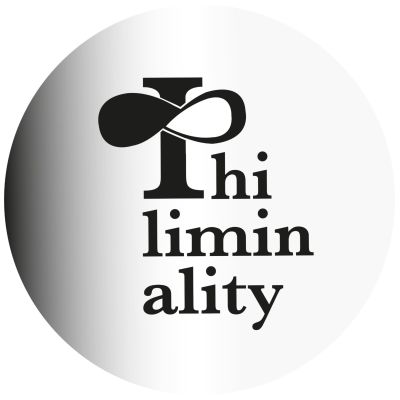Philiminality Oxford is a student-run platform for cross-cultural and interdisciplinary philosophy. We discuss philosophical ideas, thinkers, and approaches which are frequently marginalized in both Anglo-American and “continental” academic circles. We engage with broader horizons of what it means to do philosophy by discussing intersectional perspectives on brands of thought from across the world. We also recognize the value of exploring how philosophical issues interrelate with other disciplines, such as politics, theology, sociology, classics, history, psychology and natural science.
https://philiminalityoxford.wordpress.com/
Gesamtlänge aller Episoden: 18 hours 44 minutes
episode 5: 4. Mauricio Lapchik Minski - The Mäqśäftä hassätat or Against the Libel of the Ethiopians–A 17th Century Catholic Response [and Request] to the Christological Position of the Ethiopian Orthodox Church
The Jesuit missionaries’ encounter with Ethiopian Christians at the outset of the 17th century was an unparalleled period of cultural and religious interchange. During this period, European Jesuit missionaries attempted to ‘clean out’ the ‘flawed’ elements in order to proselytize the Catholic faith among the Ethiopian Orthodox believers. Their main goal was to convert those local religious expressions into a uniform faith that subscribes to European Catholicism...
episode 4: 3. Binyam Mekonnen - Critique and Emancipation in the Religious Sphere: the Däqiqä Ǝsṭifanos as a Foundation of Ethiopian Critical Theory
The Däqiqä Ǝsṭifanos is one of the medieval Ethiopian texts which predates the Hatatas of Zär’a Ya‛ǝqob and his disciple, containing profound ideas regarding the relationship between the public and private spheres, the critical role of religion as a redemptive form of discourse and a utopian imagination that radically interrogates existing human relations...
episode 3: 2. Peter Adamson -The Place of Ethiopian Philosophy in the History of Philosophy
In this talk Peter Adamson will attempt to set a context for the other contributions in the volume, by discussing the whole phenomenon of philosophy in Ethiopia and, more specifically, how it fits into the broader landscape of philosophy in the late ancient, medieval, and early modern periods. In particular, he compares this tradition to philosophical developments in other Christian communities outside Latin Christendom, e.g. philosophy written in Arabic and Syriac...
1. Ralph Lee - Reflections on Translating the Hatata into English
In making a new translation into English of the Hatata I have developed some reflections on the work, its authorship, and its context. In particular I will focus on the writers use of the bible in the works, and what this tells us about the author(s).
episode 1: 0. In Search of Zera Yacob Conference - Jonathan Egid, Lea Cantor, Justin Holder; Introductory Remarks
Introductory remarks for the In Search of Zera Yacob Conference, contextualising the aims and intentions of the conference, the texts of the Ḥatäta Zär’a Ya‛ǝqob and the Ḥatäta Walda Heywat themselves and their historical context. These texts have fascinated and puzzled alike on account of their philosophical depth, beauty and apparent historical singularity...
Ellie Robson
The history of philosophy is a history of men talking to men, about other men. Our answer to the question ‘What is philosophy for?’ has been shaped by this historical narrative. My talk explores an answer to this question posed by the woman philosopher Mary Midgley. Midgley argued that philosophy is a necessity, not a luxury. She described it as ‘something we are doing all the time, a continuous, necessary background activity which is likely to go badly if we don’t attend to it’ (2018:81)...
Sharon Stein, "The Challenges and Possibilities of Decolonizing Higher Education in VUCA Times"
Discussions about the decolonization of philosophy take place within the wider context of efforts to interrupt inherited hierarchies of knowledge and reimagine higher education as we know it. In this presentation I offer some insights from recent research and pedagogical experiments that engage the challenges and complexities of undertaking decolonizing work in a contemporary educational context characterized by volatility, uncertainty, complexity and ambiguity (VUCA)...
TAN Sor-Hoon, “Confucian Democracy and the Analects”
There has been a lively debate over the relationship of Confucianism to democracy. Samuel Huntington’s dismissal of Confucian democracy as an oxymoron has been overtaken by a variety of different proposals on whether or not the Confucian political ideal could be democratic. Disagreements among the participants in this debate include issues to do with interpretation of Confucian canonical texts, the most important of which is arguably the Analects...
Li Chenyang, "Li as Cultural Grammar: On the Relation between Li and Ren in Confucius' Analects"
A major controversy in the study of the Analects has been over the relation between the two central concepts of li (rites, rituals of propriety) and ren (humanity, human excellence). Confucius seems to have said inconsistent things about this relation. Some passages appear to suggest that ren is more fundamental than li, while others seem to imply the contrary, and it is therefore not surprising that there have been different interpretations and characterizations...
Stephen C. Angle, “The Analects and Modern Moral Philosophy”
This talk explores the advantages and disadvantages of viewing the Analects through the lens of contemporary moral theory. It looks in particular at Kantian deontology, which Sinophone scholarship on the text has tended to stress; virtue ethics, which is more prominent in Anglophone secondary literature; and role ethics, which has emerged as a potential alternative to both deontology and virtue ethics...
